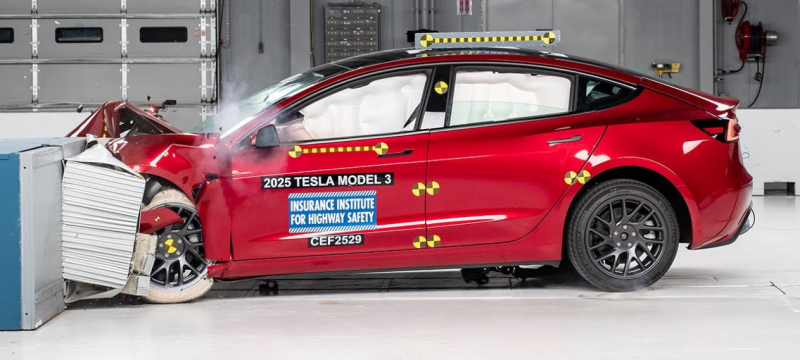The Insurance Institute for Highway Safety (IIHS) has released fresh safety ratings that are raising concerns. The new IIHS crash tests reveal problems for some popular electric cars, highlighting weaknesses that may affect buyer confidence.
According to the results, several well-known EV models failed to achieve top scores in key categories. Issues were mainly linked to structural integrity and passenger safety during side-impact and frontal collision tests. While many cars performed well in certain areas, others showed vulnerabilities that require improvements.
The new IIHS crash tests reveal problems for some popular electric cars, especially in how they protect rear-seat passengers. In multiple cases, crash dummies indicated a higher risk of injury compared to expectations. This finding has drawn attention from both regulators and consumers.
Experts explained that while electric cars often score high in environmental performance, safety challenges remain. The added weight of EV batteries can impact crash dynamics, making it harder to design vehicles that balance strength with efficiency.
Despite the concerns, some models did receive strong overall ratings. These results show that safe design is possible, but not all manufacturers are meeting the same standard. The IIHS urged automakers to focus more on rear-seat safety and occupant protection in future models.
The new IIHS crash tests reveal problems for some popular electric cars, serving as a reminder that technology alone does not guarantee safety. As EV adoption grows, analysts believe buyers will pay close attention to crash test results before making purchasing decisions.
In conclusion, the latest IIHS findings underline the importance of continuous improvement in electric vehicle safety. Automakers are now expected to address these weaknesses to ensure EVs meet the same high safety standards as their traditional counterparts.
Read More : Tesla Cybertruck Raises Safety Concerns because of its Stiff Structure and Sharp Design







